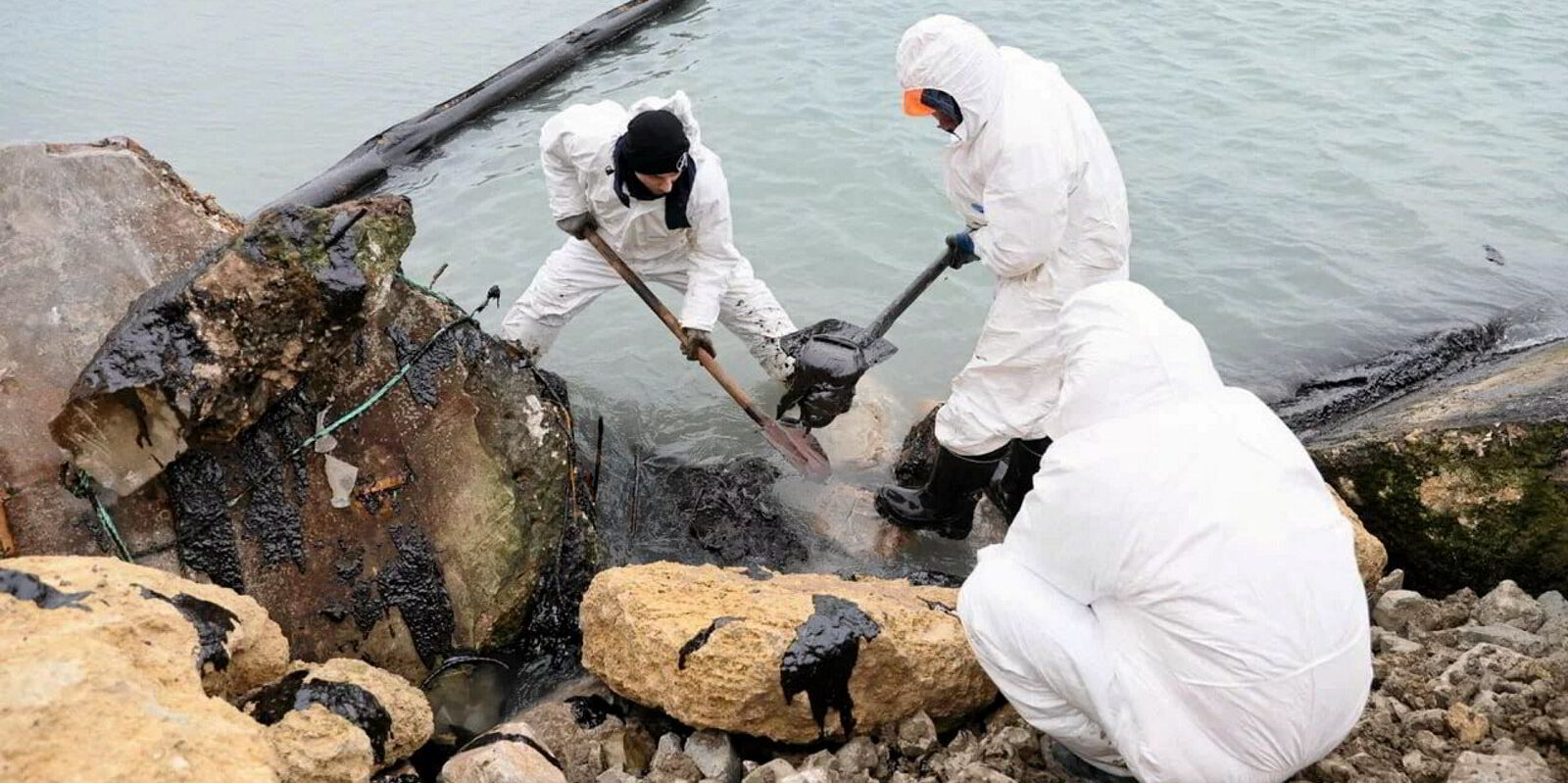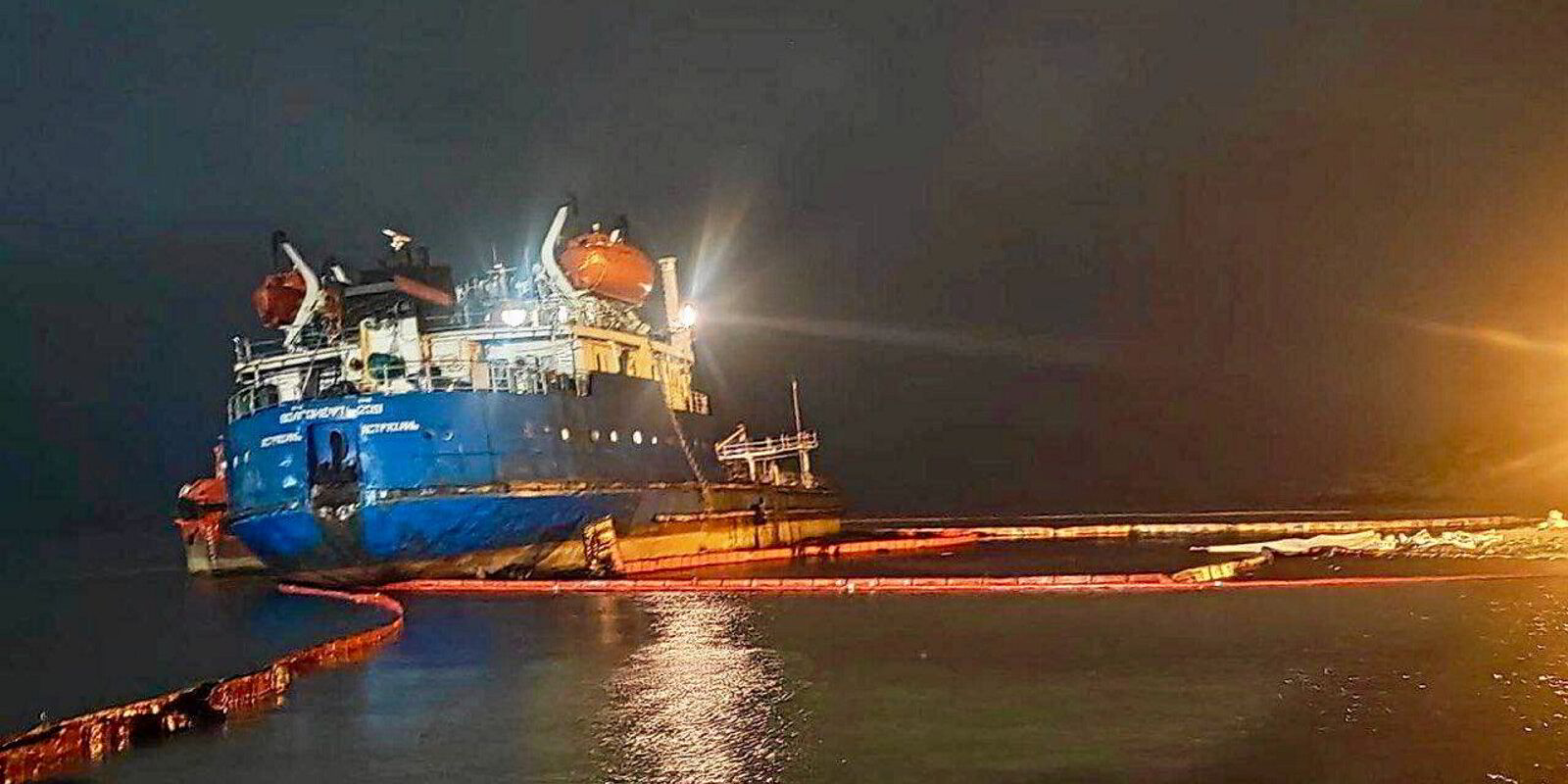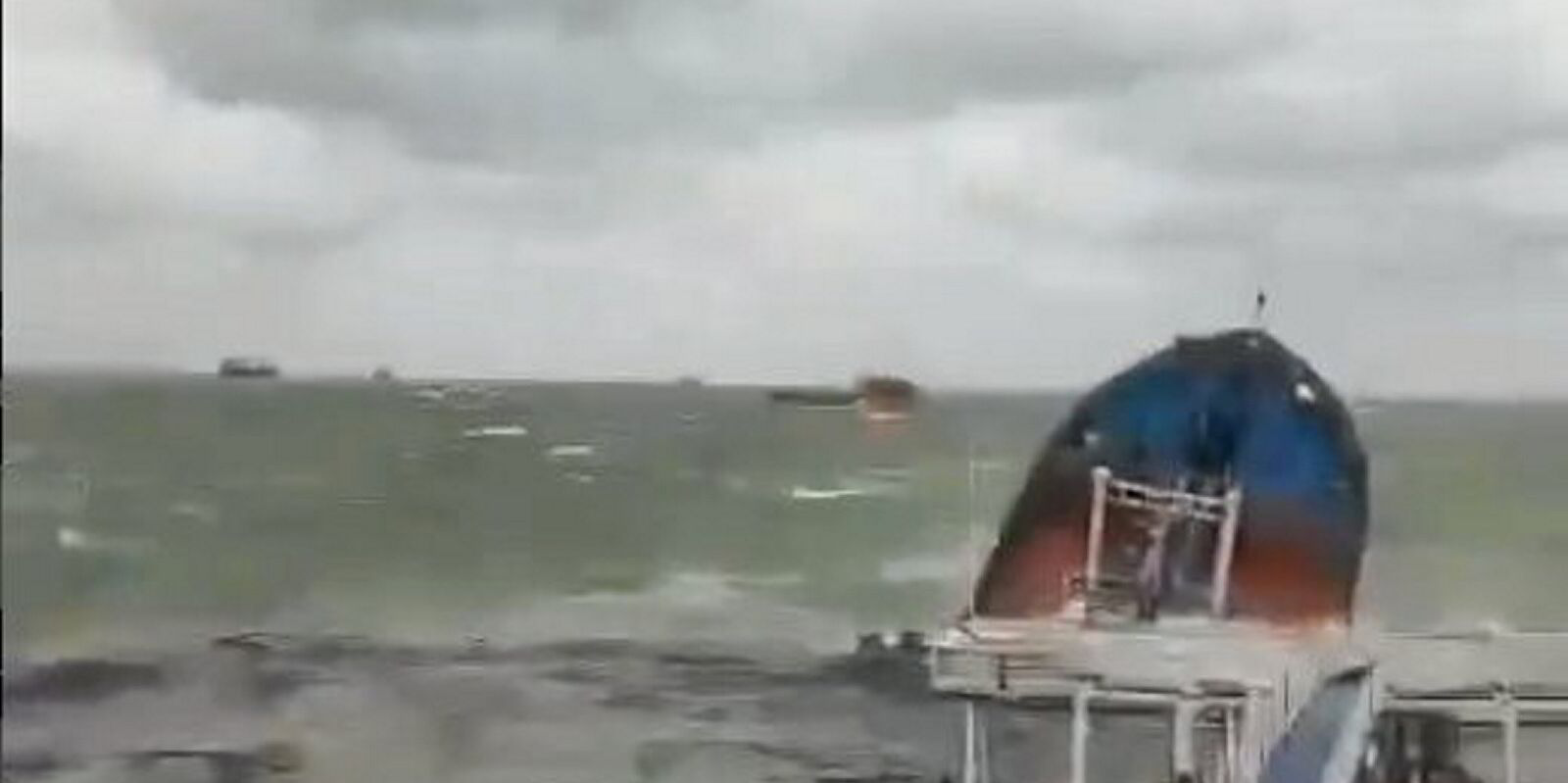A creditor has launched bankruptcy proceedings against the Russian owner of a ship that caused an environmentally disastrous oil spill in the Black Sea last month, government and court documents show.
The development, which relates to an alleged debt from well before its vessel ran aground, is reminiscent of a similar chain of events 15 years ago, when a predecessor outfit was rolled up after a similar maritime accident.
Creditor Volga-Bunker is chasing tanker owner Volgatransneft for amounts owed, according to the Moscow Arbitration Court and Fedresurs, an official register for corporate legal notices.
Specialist Russian maritime website PortNews identifies Volgatransneft as the owner of the 4,800-dwt Volgoneft 239 (built 1973), which ran aground and spilled its cargo in December.
According to court documents filed on the official government websites, Volga-Bunker is seeking RUB 6.5m ($63,000) from Volgatransneft following a fleet sale between the two companies more than two years ago.
In the deal concluded on 23 June 2022, Volga-Bunker sold six elderly vessels to Volgatransneft: the 4,190-dwt Volgoneft 164, Volgoneft 208, Volgoneft 219 (all built 1970), 5,900-dwt Volgoneft 206 (built 1969), 4,200-dwt Volgoneft 246 (built 1975) and 3,475-gt Volgoneft 264 (built 1978).
No lawyer came forward to defend Volgatransneft at a hearing at the Moscow Arbitration Court in January 2024, which eventually ruled against the company and ordered it to pay the amount owed.
Volga-Bunker pressed its case further after Volgatransneft apparently failed to comply with the ruling, documents show.
In a motion filed with the Fedresurs registry on 13 January, Volga-Bunker notified that it would return to the Moscow Arbitration Court with a demand to declare Volgatransneft in a state of bankruptcy.
TradeWinds was unable to find contact information for the tanker owner.
The case would not be the first time that an owner of older Volgoneft vessels has faced bankruptcy proceedings after an oil spill.
In March 2008, the Moscow Arbitration Court declared Volzhski Oil Shipping Co (Volgotanker) bankrupt over a tax and fraud case pending since 2004.

Four months before that ruling, Volgotanker’s 4,190-dwt Volgoneft 139 (built 1978) broke its back in the Kerch Strait, spilling up to 2,000 tonnes of heavy fuel oil and polluting 250 km of coastline in Russia and Ukraine.
This sequence of events is similar to the one still unfolding in the case of the 4,800-dwt Volgoneft 212 (built 1969) and the Volgoneft 239, which spilled their cargo into the Kerch Strait on 15 December 2024.
The Volgoneft 212 broke up and sank during a fierce storm in the area connecting the Black Sea to the Sea of Azov, dragging down one seafarer with it.
The Volgoneft 239 managed to stay afloat in the same storm, even though its stern ran aground and the ship started leaking near Cape Panagia.
Databases list both ships as controlled by Volgotanker. Their actual ownership is murky following that company’s bankruptcy and subsequent attempts to sell down its assets.
What were they doing there?
The latest Volgoneft oil spills sent Russian authorities scurrying to undo the damage.
Several regional administrations, from Krasnodar to Russian-occupied Crimea, declared a state of emergency and sent teams to clean up beaches.
In addition, a road was built to improve land access to the grounding site of the Volgoneft 239.
The Krasnodar administration said on 14 January that it was building a 400-metre containment barrier around the ship to prevent further oil spills.
A local prosecutor is investigating possible criminal charges.
Tankers of the Volgoneft series are usually employed in inland rivers.
According to local media, the investigation is focused on why the two stricken vessels were operating in the Kerch Strait instead, in severe weather conditions.
Authorities in Ukraine, a neighbouring country that Russia is at war with, expressed concern as well.





